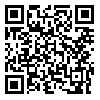Volume 11, Issue 1 (2023 2023)
JRH 2023, 11(1): 65-75 |
Back to browse issues page
Download citation:
BibTeX | RIS | EndNote | Medlars | ProCite | Reference Manager | RefWorks
Send citation to:



BibTeX | RIS | EndNote | Medlars | ProCite | Reference Manager | RefWorks
Send citation to:
Hosseini Karnami S H, Alipour A, Malekzadeh R. Analyzing the Concept of "Disease Contagion" in Infectious Diseases from the Perspective of Hadith and Medical Jurisprudence. JRH 2023; 11 (1) :65-75
URL: http://jrh.mazums.ac.ir/article-1-1021-en.html
URL: http://jrh.mazums.ac.ir/article-1-1021-en.html
Department of Islamic Studies, Faculty of Medicine, Mazandaran University of Medical Sciences, Sari, Iran
Abstract: (3387 Views)
Background and objectives: With the epidemic of coronavirus, based on the content of some hadiths, including the famous hadith "La'Adwi", and combining and comparing it with some teachings of traditional medicine, some appearanceists declared that all diseases are non-contagion. This attitude was in opposition to modern medicine and in denial of the spread of infectious diseases, which resulted in non-observance of health issues and consequently led to the spread of the disease, increase in the costs of the health sector, and the negative view of researchers towards Islamic teachings.
Materials and Methods: The current research was carried out using reliable library sources, related articles, and the content analysis method. This inferential study aimed to investigate “disease transmission from the viewpoint of medical jurisprudence and hadith" and then adapt the findings to new medical results.
Results: Findings of the present research revealed that the superficial attitude towards the hadiths and its teachings is harmful, and the attitude towards the hadiths in this matter, including the hadith of La'Adawi, is controversial from the point of view of many scholars. Moreover, some of its narrators are unreliable and the fact that the source of this hadith is the Prophet of Islam is questionable. In terms of implication, in addition to its conflict with the facts of human experience in the medical field, there are many analyzes for it. Assuming the acceptance of the negation of the spread of the disease in this hadith, it should be said that only the transmission of a specific infectious disease such as "Scabies" in animals that was the subject of question in the hadith was denied.
Conclusion: By taking into account the problems of authenticity, reliability, and the implication of the hadith concerning the non-transmission of the disease, as well as definivity of some hadiths regarding the possibility, existence, and spread of the disease, taking health care measures, quarantine, avoiding the disease, and observing social distancing during the disease outbreak is a rational, legitimate, and bligatory decision to make.
Materials and Methods: The current research was carried out using reliable library sources, related articles, and the content analysis method. This inferential study aimed to investigate “disease transmission from the viewpoint of medical jurisprudence and hadith" and then adapt the findings to new medical results.
Results: Findings of the present research revealed that the superficial attitude towards the hadiths and its teachings is harmful, and the attitude towards the hadiths in this matter, including the hadith of La'Adawi, is controversial from the point of view of many scholars. Moreover, some of its narrators are unreliable and the fact that the source of this hadith is the Prophet of Islam is questionable. In terms of implication, in addition to its conflict with the facts of human experience in the medical field, there are many analyzes for it. Assuming the acceptance of the negation of the spread of the disease in this hadith, it should be said that only the transmission of a specific infectious disease such as "Scabies" in animals that was the subject of question in the hadith was denied.
Conclusion: By taking into account the problems of authenticity, reliability, and the implication of the hadith concerning the non-transmission of the disease, as well as definivity of some hadiths regarding the possibility, existence, and spread of the disease, taking health care measures, quarantine, avoiding the disease, and observing social distancing during the disease outbreak is a rational, legitimate, and bligatory decision to make.
Type of Study: Content analysis |
Subject:
Islami Sciences & Thoughts
Send email to the article author
| Rights and permissions | |
 |
This work is licensed under a Creative Commons Attribution-NonCommercial 4.0 International License. |






